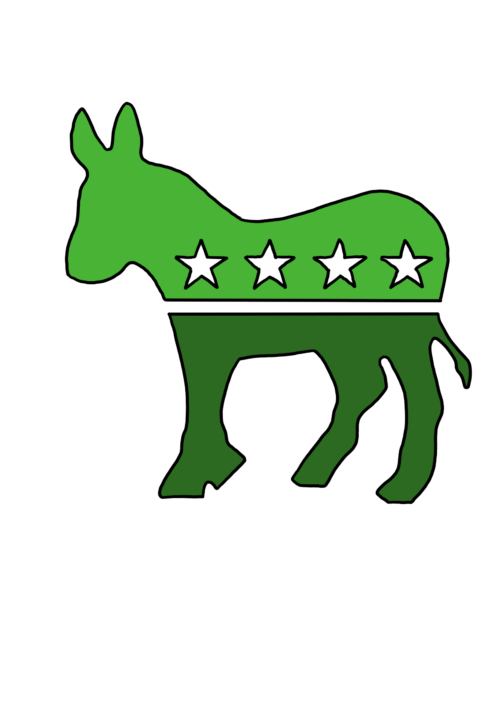The terms “brat summer,” “Kamalanomenon,” and “coconut tree” haven’t exactly been the easiest election jargon to explain to older family members, colleagues, and friends. Today, young people across the U.S. and around the world have embraced these terms as they’ve been bestowed upon the current U.S. Vice President Kamala Harris.
In today’s political landscape, social media has become an indispensable tool for politicians, allowing them to bypass traditional media channels and speak directly to their audience. This shift isn’t just about messaging; it’s about changing the nature of politicians’ relationships with younger generations.
On July 21, current President Joe Biden stepped down from his 2024 presidential campaign, and the @BidenHQ official campaign account on X transformed into @KamalaHQ, the “official rapid response page of Vice President Harris’ presidential campaign.” Presidential candidate Harris’ campaign team immediately capitalized on the 31-year-old British pop singer Charli XCX’s viral trend phenomenon “BRAT,” updating the account’s cover photo to mimic the style of the pop star’s June album: all lowercase font over a neon green background.
Charli XCX dubbed the summer of 2024 as “brat summer,” describing “BRAT” as being “just that girl who is a little messy and likes to party and maybe says dumb things sometimes.” On the day Harris declared her run for the presidency, Charli XCX, who has 3.6 million followers on X, voiced her support for the current vice president by tweeting, “kamala IS brat.”
Harris and her team’s embrace of the “brat summer” phenomenon shows how cultural relevance and digital strategy hold significant potential to mobilize younger voters. David Hogg ’23, a 24-year-old activist and co-founder of the March for Our Lives movement, shared a similar sentiment in a reply to Charli XCX’s post.
“The amount this single tweet may have just done for the youth vote is not insignificant,” Hogg wrote.
“Brat summer” is not the only Kamala Harris meme that has gained mass popularity online since Biden’s announcement. Supporters of Harris have also revived and reclaimed the viral “coconut tree” quote, which originates from remarks the Vice President made at the White House while swearing in the President’s Advisory Commission on Advancing Educational Equity, Excellence, and Economic Opportunity for Hispanics. Sharing a personal anecdote near the conclusion of her speech, Harris detailed how her mother would say to her, “I don’t know what’s wrong with you young people. You think you just fell out of a coconut tree? You exist in the context of all in which you live and what came before you.”
The “coconut tree” has become an emblem of Harris’ campaign after the quote went viral, capturing generational tension with a mix of humor, wisdom, and cultural resonance. Among the memes and soundbites, Harris’ coconut tree remark offers a blend of brevity, humor, and insight. The quote acts as a playful nudge from a parental figure who gets it—someone who respects youth’s independence but wants to ensure we don’t lose sight of our history and community.
The internet has generated thousands of video edits of Harris dancing and laughing, often bringing components of Brat neon green, popular Charli XCX songs, and the wildly memed “coconut tree” clip. One of the current most popular edits of “brat” Kamala has amassed more than 3.5 million views and more than 700,000 likes. The hashtag #kamalaharris is trending on TikTok, with more than 482.6k posts.
The rise of Vice President Kamala Harris in the 2024 presidential election, amplified through platforms like TikTok and X, reveals how social media is redefining political momentum. This shift signals a new era for politics, where connecting with the next generation isn’t about policy—it’s about speaking our language and meeting us where we are.
The “brat” phenomenon has helped provoke a necessary cultural renaissance for the Democratic Party, departing from low approval ratings and anxieties surrounding President Biden’s age. CNN’s Jake Tapper argued that the success of Harris’ brat summer is a direct result of “going right for [the youth] in a language of their own.”
Connecting with young Americans will undeniably increase voter turnout in November. After Harris entered the presidential race, Vote.org announced a nearly 700% increase in voter registration, finding that almost all of these new voters are people under the age of 35. In this upcoming election, Millenials and Gen-Z will comprise 44% of American voters. Generation Z, composed of Americans born between 1997 and 2012, is the largest generation in American history and is on its way to becoming the majority of the voting population.
It is both scary and exciting to see the ways in which politics, media, and culture can co-exist and merge. In this new era of digital politics, the challenge for all political actors is to harness the power of social media while ensuring that it serves the greater good of democracy.
This fall, I know that Gen-Z voters will come to the polls like we never have before, because sustained excitement and reinvigorated hope are things to believe in and mobilize around.
Rania Jones ’27 (rjones@college.harvard.edu) always did like the color green.

